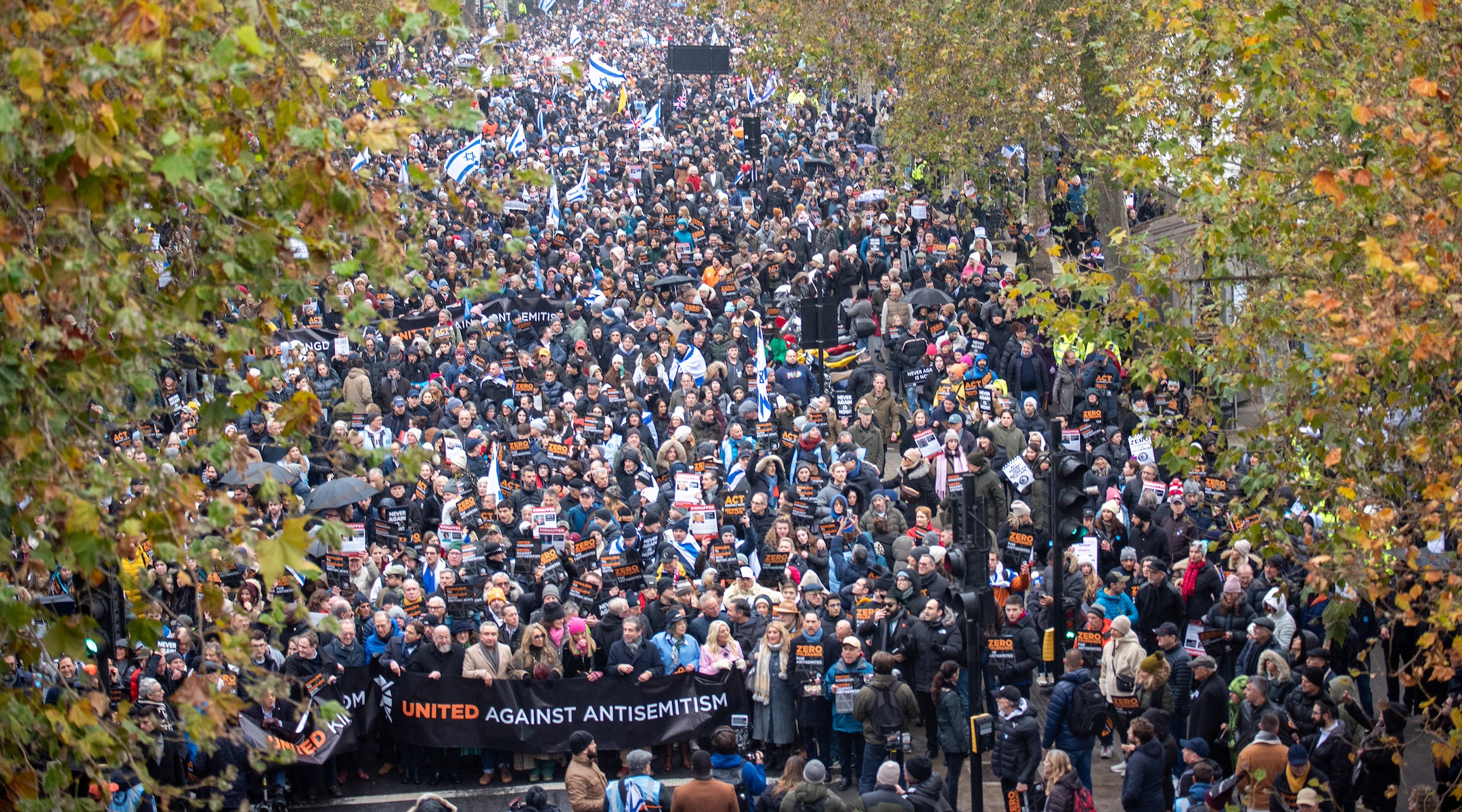(JTA) — Police estimated that 50,000 people showed up for a march against antisemitism on Sunday in what reports are calling the largest such gathering in London since before World War II.
Organizers estimated that 60,000 attended the march, which was planned in reaction to the spike in antisemitism around the world that has accompanied the Israel-Hamas war that began on Oct. 7.
Speaking at the march, British Chief Rabbi Ephraim Mirvis said Jews “will not be intimidated.”
“We must teach our children that the superheroes of our society are those who pursue peace and loving kindness, and not those who glorify violence and murder, and we must teach people that they must draw their conclusions from historical facts and not from what they see and hear on social media,” Mirvis said.
The march was organized by the Campaign Against Antisemitism, a watchdog founded in 2014 that publishes reports on government hate crime statistics and has sued prominent antisemites.
London police received reports of 657 antisemitic and 230 Islamophobic incidents between Oct.1 and Nov. 1, a significant jump in both categories. On Nov. 2, staff at London’s Wiener Holocaust Library — the world’s oldest Holocaust library and research center — found graffiti that read “Gaza” across their building’s sign.
Former Prime Minister Boris Johnson was among the rally’s attendees. Far-right activist Stephen Yaxley-Lennon, who goes by Tommy Robinson, was told beforehand by police to not attend over concerns that his presence could distress protesters and disturb peace. When he showed up, police arrested him.
Since Oct. 7, London has hosted some of the world’s largest pro-Palestinian protests. While one on Saturday gathered around 45,000, up to 300,000 attended a similar protest earlier this month. That same weekend, around 180,000 attended rallies against antisemitism in France.
The question of how police should handle pro-Palestinian protests has split Britain’s ruling Conservative Party. Suella Braverman, Prime Minister Rishi Sunak’s former home secretary, was fired after she wrote in an oped that London police are more lenient towards pro-Palestinian protesters than they are towards right-wing protesters.
At the 1936 Battle of Cable Street, London’s largest gathering against antisemitism, approximately a quarter-million people — a mix of Jews, Irish dock workers, the local working class and communists — gathered to prevent a government-sanctioned march by the British Union of Fascists through a Jewish neighborhood in the city.
Ahead of Sunday’s march, multiple BBC journalists petitioned their employer to let them join the rally but were rejected over rules to prevent bias.
JTA has documented Jewish history in real-time for over a century. Keep our journalism strong by joining us in supporting independent, award-winning reporting.






